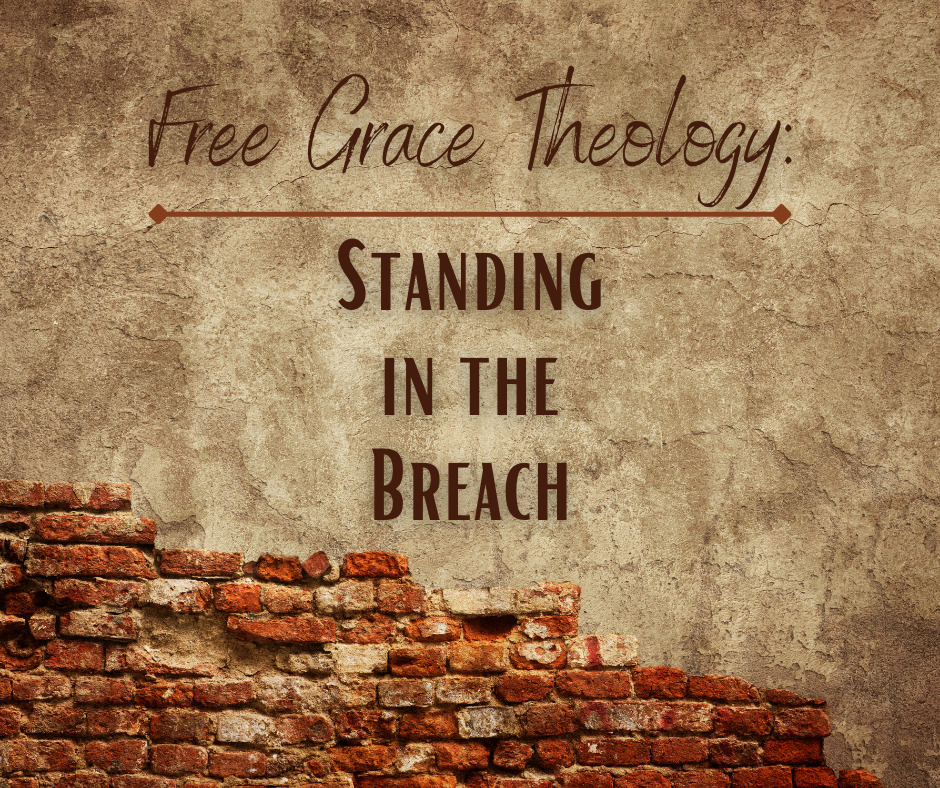Evangelical conservative Christians, and even just older conservative people, all understand that there is a cultural battle going on. The battle is often described as being against postmodernism. Whatever name it goes by, we see what is going on. We live in a day when many believe there is no ultimate source of truth. Things that were held to be true no longer are. Today, men can marry men, and women can marry women. In fact, a man can claim to be a woman and then marry a man. People can claim whatever truth they want to claim for themselves. To say that there are absolute truths that apply to everybody will quickly get a person labeled as a bigot or close minded.
It occurred to me recently that in a least one important way, Free Grace theology is involved in this battle in a unique way. Probably the biggest thing that attracted me to this theology was its willingness to go to one source of authority, which is the Bible. The Free Grace people I met were willing to reject things they used to believe and practice if the Bible taught something different. This involved looking at the context of what the Bible was saying. It was fascinating to me to look at the context of various passages and realize that I had been wrong in what I had believed and taught. What I thought did not matter. The Bible is true, and we all should be in the business of determining what it says, not what my denomination or pastor or anybody else thinks.
While MANY will strongly disagree with me here, it became clear to me that the Free Grace movement was pretty much fighting this particular battle alone. While all conservative Evangelical Christians claim that the Bible is their source of truth, they often don’t practice what they preach. Like I said, this is what attracted me to the movement.
I realized this when I heard time after time people say: “The Free Grace view on this passage cannot be true. I have never heard that before. Nobody else has taught that.” It would not matter if a FG teacher painstakingly looked at a context to make his case. The response would be that the church fathers did not teach that. The Reformers did not teach it. The commentaries don’t teach it. No denomination teaches it
It was also common to hear that FG theology could not be true because it did not make sense. If the FG view of the gospel was true, and we could know we have eternal life now and it could never be lost, Christians would just live however they want. After all, doesn’t James 2 say that faith without works is dead? Of course, they would almost universally say that without dealing with the context of James 2!
The bottom line in all of this is that FG theology cannot be true because many others have said it cannot be true. One problem with this conclusion is that there was often no consensus among the “others” as to what was true, either. They differed among themselves. There are many different ways to see the truth. What was true was determined by one’s traditions, one’s church, one’s pastor, one’s parents. Truth would often be determined by what a favorite, popular teacher said. There was no need to go to the Bible as the sole source of truth and let it challenge what we believe. It is not overstating the fact that with this way of viewing things, there is no single source of truth.
Many will say I am overstating the problem. But consider a few points. How many Bible studies have you been in, while attending conservative Christian churches, where each person was told to share “what the passage or verse means to you?” How many times have you heard the Bible taught without any concern for the context? How many readers of this blog have heard FG perspectives rejected simply because they are “novel”? How could a novel view be correct when Calvin, Billy Graham, or some other teacher disagreed?
While I have a couple of stories that many will say are anecdotal, I feel confident that many others will relate to them. My older brother was in a Bible study in which certain conservative theological views were presented without looking at the context. He asked a number of questions, seeking to determine what light the context would have on these passages. The teacher politely and semi-humorously said he was asking too many questions. Recently I was in a study on the Olivet Discourse. The teacher said that if we are really saved, we will visit people in prison, feed the hungry and take care of the sick. I simply asked who the sheep and goats were. Is this passage talking about the church? Does this take place after the Rapture of the church? Isn’t this teaching salvation by works? I suggested that if we looked at the context, we might arrive at different conclusions. The general answer given by the class is that there was no need to concern ourselves with the context. We simply need to love Jesus. James 2 teaches us that those who love Jesus and are saved will do these kinds of good works.
All conservative churchgoers recognize we are in a cultural war. The very notion of objective truth is being discarded in regard to almost everything, including even our sexual identity. In that war, there are plenty of allies. Folks from all different kinds of theological backgrounds are in agreement. But postmodern thought has also impacted how we conduct Bible study. In that battle, Free Grace folks often feel they are standing in the breach in the wall by themselves.





